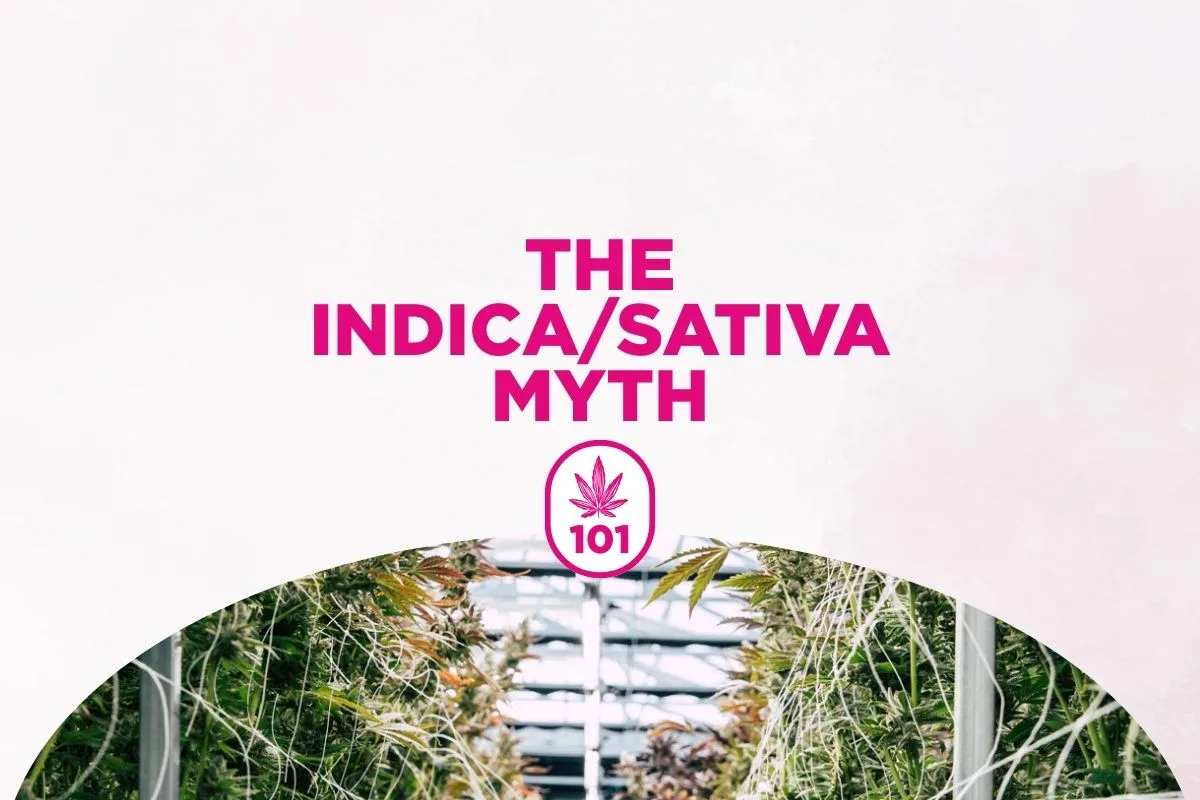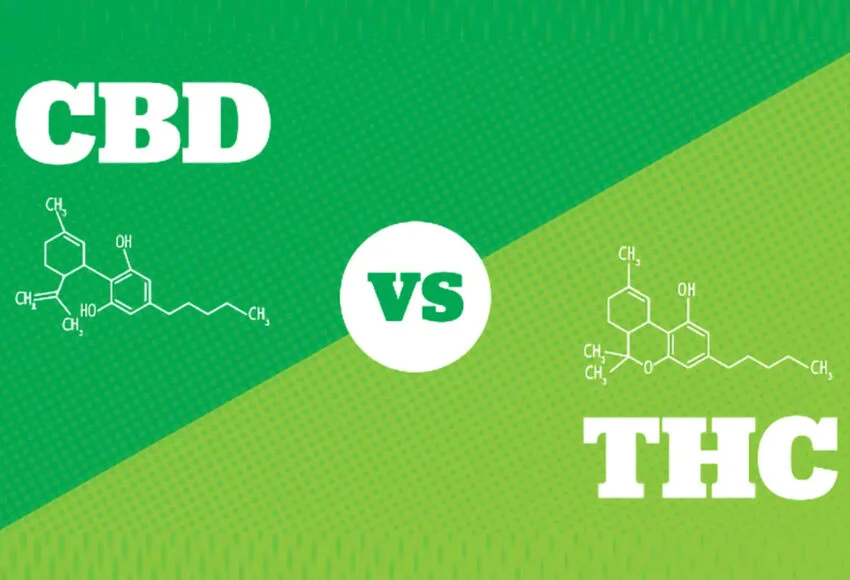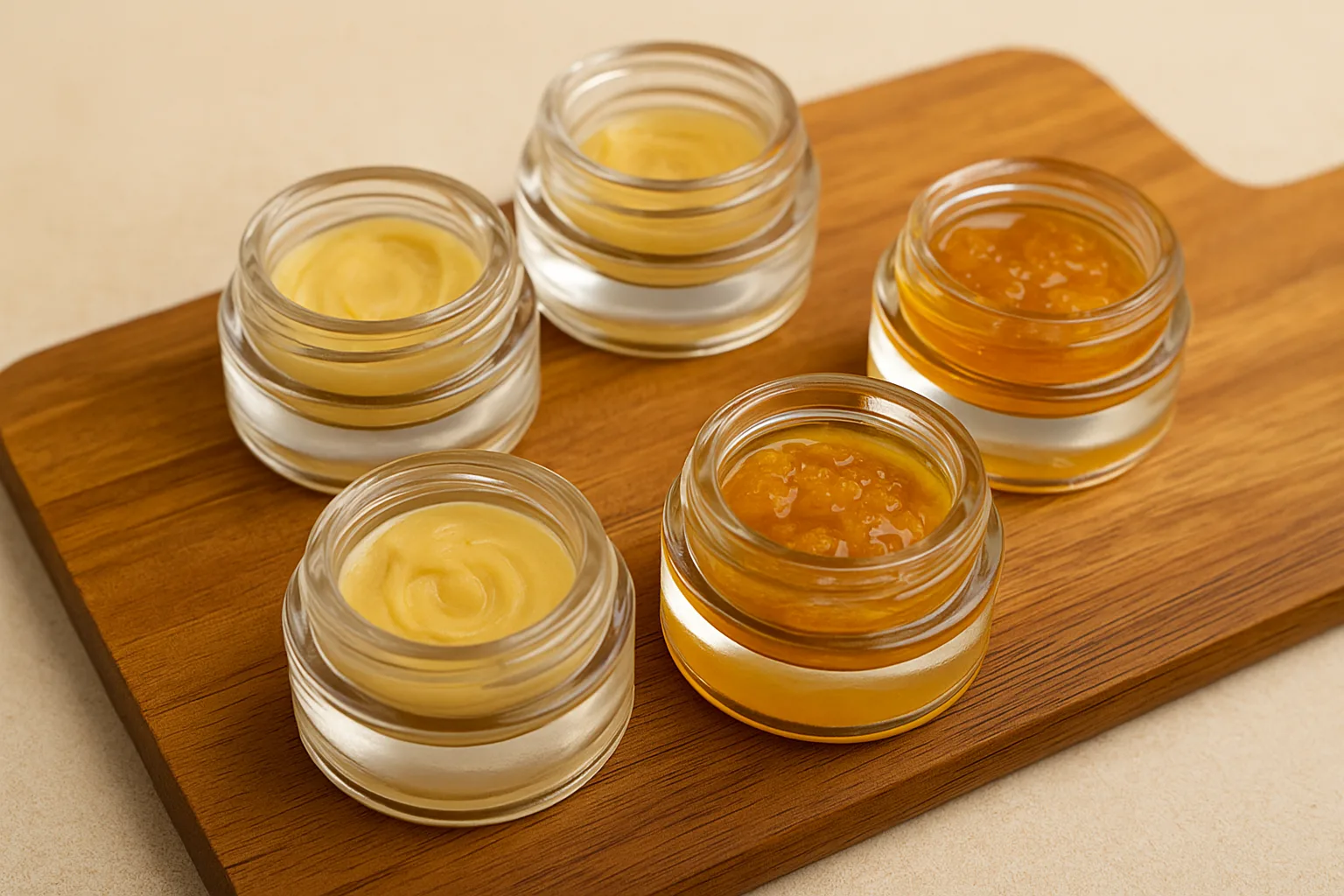

With the passing of the Farm Bill hemp has become legal in the United States. This new development has joined the 39 states where medical cannabis is now legal, allowing many patients to begin exploring their options with cannabinoids, namely, Cannabidiol (CBD) and tetrahydrocannabinol (THC).
CBD is a cannabinoid found in high numbers in Cannabis Sativa, or Hemp. CBD can also be found in Cannabis Indica, boasting higher THC numbers. Both types of plants can produce CBD used for gummies, oils, supplements, concentrates, etc.
THC is the famously intoxicating molecule that many people associate with cannabis. THC is the primary psychoactive compound in cannabis that produces a high sensation. It is available in a myriad of products, including oils, edibles, tinctures, capsules, and of course, flower.
There are over 60 cannabinoids found in cannabis, but THC and CBD are by far the most abundant. Both compounds interact with your body’s natural endocannabinoid system, but they have very different effects. While many have a lot in common, some essential differences determine how they’re best used to modulate your endocannabinoid system.
Both CBD and THC have the same molecular structure: 21 carbon atoms, 30 hydrogen atoms, and two oxygen atoms. The slight difference in how the atoms are arranged accounts for the differing effects on your body and how it binds to receptors.
Both CBD and THC are chemically similar to your body’s endocannabinoids, allowing them to interact with your cannabinoid receptors. The interaction affects the release of neurotransmitters in your brain, which are chemicals responsible for relaying messages between cells and have roles in pain, immune function, stress, and sleep, to name a few.
CBD and THC don’t have the same psychoactive effects despite their similar chemical structure. CBD doesn’t produce the traditional “high” associated with THC. CBD has been shown to help with anxiety, depression, and seizures.
THC binds with the cannabinoid 1 (CB1) receptors in the brain to produce a mind-altering sense of euphoria. CBD, however, binds very weekly to the CB1 receptors.
CBD is most effective when THC is added in order to attach to the CB1 receptor. This can help reduce some of the unwanted psychoactive effects of THC by working as an antipsychotic.
CBD and THC has similar medical benefits and can provide relief from several of the same conditions. The main difference is CBD doesn’t cause the euphoric effects that occur with THC. Some people may prefer to use CBD because of the anxiolytic qualities without the intoxicating effect.
In June 2018, the FDA approved trusted Source Epidiolex, the first prescription medication to contain CBD. It’s used to treat rare, difficult-to-control forms of epilepsy. (Epidiolex is not currently approved for any of the other conditions listed below.)
CBD is used to help with other various conditions, such as:
THC is used to help with the following:
CBD is well tolerated, even in large doses. ResearchTrusted Source suggests any side effects that occur with CBD use are likely the result of drug-to-drug interactions between CBD and other medications you may be taking.
THC causes temporary side effects, such as:
CBD’s side effects may include:
These side effects are part of the compound’s psychoactive properties and fatal risks are extremely unlikely.
High THC use may be connected to long-term adverse psychiatric effects. This can be true for adolescents who consume large amounts of THC, though there’s no conclusive evidence that using cannabis causes psychiatric disorders like schizophrenia.
Cannabinoids, like THC and CBD, are stored in the body’s fat and can show up on drug tests for several days or weeks after you consume cannabis. Not every drug test will be looking to detect CBD, but CBD-sensitive tests are available. Most standard drug tests will look for chemicals related to THC, so THC or marijuana use might show up on screening.
Hemp has the ability to produce small amounts of THC in addition to CBD, so a test could be positive for THC even if you haven’t used it. It’s important to note that products that claim to be THC-free may not be free of THC, so if you’re drug tested, you shouldn’t use any CBD or THC products.
In the United States, cannabis-related laws are regularly evolving.
Hemp has been removed from the Controlled Substances Act, but the Drug Enforcement Administration (DEA) and Food and Drug Administration (FDA) still classify CBD as a Schedule I drug.
Despite its questionable legality, 39 states plus Washington, D.C., have passed cannabis-related laws, making medical cannabis accessible for cultivation and purchase once prescribed by a licensed physician.
In addition, several states have made recreational use of cannabis and THC legal and available for anyone over the age of 21.
CBD and THC are two of the most prominent cannabinoids found in the cannabis plant. Both cannabis and hemp produce CBD and THC. However, Cannabis Indica has a higher concentration of THC than Cannabis Sativa, or hemp which has a higher concentration of CBD.
Cannabis can have a wide range of cannabinoid percentages and CBD oil may contain small amounts of THC because it’s still present in the hemp plant despite being at low levels. Under the Farm Bill, CBD produced from Cannabis Sativa should have no more than 0.3 percent THC to be legal at the federal level.
CBD and THC both have medical benefits and are both considered safe but it’s important to always consult your doctor. There are potentially side effects and interactions with other drugs you’re taking. Talk with your doctor or qualified cannabis or CBD clinician before use and if you have any questions.
Want to learn more about CBD? for more product reviews, recipes, and research-based articles about CBD from Healthline.
| CBD | THC | |
|---|---|---|
| Is illegal | No (See below) | Yes (See below) |
| Produces a high | No | Yes |
| Interacts with endocannabinoid system | Yes | Yes |
| Has side effects | Some | Psychoactive side effects |
| Shows on drug test | Possibly | Yes |
| Relieves pain | Yes | Yes |
| Reduces nausea | Yes | Yes |
| Eases migraine | Yes | Yes |
| Reduces anxiety | Yes | Yes |
| Eases depression | Yes | No |
| Decreases seizures | Yes | No |
| Is anti-inflammatory | Yes | Yes |
| Helps with insomnia | Yes | Yes |
| Helps with psychosis | Yes | No |
| Increases appetite | No | Yes |
| It is used for various other conditions | Yes | Yes |
Is CBD Legal? Hemp-derived CBD products (with less than 0.3 percent THC) are legal on the federal level but are still illegal under some state laws. Marijuana-derived CBD products are prohibited on the federal level but are permitted under some state laws. Check your state’s laws and those of anywhere you travel. Keep in mind that nonprescription CBD products are not FDA-approved and may be inaccurately labeled.
Credit by: https://www.healthline.com/health/cbd-vs-thc

Cannabis has gained popularity for its medicinal and recreational use, with various consumption methods available, including edibles. However, not everyone responds to cannabis in the same way, and certain medical conditions can affect how the body processes tetrahydrocannabinol (THC), the psychoactive compound in cannabis. In this article, we will explore medical conditions that may make […]

If you’ve ever stood in front of the concentrates section at Shangri-La and felt a little overwhelmed, you’re not alone. With names like “badder,” “rosin,” and “diamonds in sauce,” these powerful products can feel like an entirely different language. But fear not—we’re here to demystify the world of cannabis concentrates so you can shop with […]
Shangri-La Proudly Serves: Connecticut, Illinois, Kentucky, Missouri and Ohio.